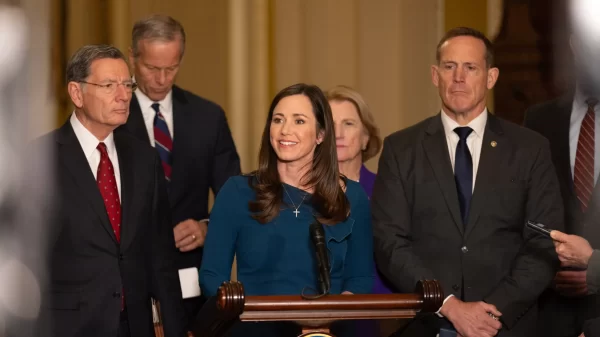Monday, Alabama Attorney General Steve Marshall (R) urged the FCC to encourage telecommunications companies to implement strong call blocking and call authentication procedures to protect consumers from illegal robocalls and spoofing.
Marshall joined a coalition of 51 attorneys general (including the District of Columbia) in a comment letter to the Federal Communications Commission (FCC).
“To many of us, robocalls are a nuisance that interrupts our everyday lives, but when scammers prey upon vulnerable citizens, robocalls can cause significant harm,” said Marshall. “Real solutions require technology and the cooperation of phone service providers. We are pleased that some companies are stepping up to protect consumers, and we stand behind the FCC in sending a strong message that comprehensive action is required.”
The attorneys general are advocating for free automatic call-blocking to all customers, with safeguards in place to avoid inadvertent blocking of important calls such as emergency alerts or automated calls that customers have signed up for, like medical reminders.
The attorneys general join with the FCC in its call for major voice service providers to quickly implement technology known as STIR/SHAKEN to verify the authenticity of a caller’s phone number. They say that this is an important tool to prevent scammers from spoofing their numbers to make it appear that a call is coming from the consumer’s local area. ttorney General Steve Marshall Urges FCC to Strengthen Efforts to Stop Illegal Robocalls
(MONTGOMERY) — Attorney General Steve Marshall is urging the FCC to encourage telecommunications companies to implement strong call blocking and call authentication procedures that would protect consumers from illegal robocalls and spoofing. Attorney General Marshall joined a coalition of 51 attorneys general today in a comment letter to the Federal Communications Commission (FCC).
“To many of us, robocalls are a nuisance that interrupts our everyday lives, but when scammers prey upon vulnerable citizens, robocalls can cause significant harm,” said Attorney General Marshall. “Real solutions require technology and the cooperation of phone service providers. We are pleased that some companies are stepping up to protect consumers, and we stand behind the FCC in sending a strong message that comprehensive action is required.”
The attorneys general advocate free automatic call-blocking to all customers, with safeguards in place to avoid inadvertent blocking of important calls such as emergency alerts or automated calls that customers have signed up for, like medical reminders.
The attorneys general join the FCC in its call for major voice service providers to quickly implement technology known as STIR/SHAKEN to verify the authenticity of a caller’s phone number, an important tool to prevent scammers from spoofing their numbers to make it appear that a call is coming from the consumer’s local area. The FCC says that if this technology is not adopted voluntarily, they have proposed regulatory action to require it.
The attorneys general also are calling for the development of caller ID authentication to combat robocalls to landline telephones. The AGs noted that , noted that many of victims of robocall scammers are elderly
consumers or residents of rural areas who primarily use landline technology.
Many of these actions are covered in a set of anti-robocall principles announced last week by the Attorneys General to fight illegal and abusive robocalls.
Twelve phone companies— AT&T, Bandwidth, CenturyLink, Charter, Comcast, Consolidated, Frontier, Sprint, TMobile, U.S. Cellular, Verizon and Windstream–have already signed on to the principles.
The comment letter to the FCC was signed by the attorneys general of all 50 states and the District of Columbia. He FCIf this technology is not adopted voluntarily, the FCC has proposed regulatory action to require it.
In addition, the attorneys general call for the development of caller ID authentication to combat robocalls to landline telephones, noting this is particularly urgent because many of victims of robocall scammers are elderly consumers or residents of rural areas who primarily use landline technology.
Many of these actions are covered in a set of anti-robocall principles announced last week by the Attorneys General to fight illegal and abusive robocalls. Twelve phone companies— AT&T, Bandwidth, CenturyLink, Charter, Comcast, Consolidated, Frontier, Sprint, TMobile, U.S. Cellular, Verizon and Windstream–have already signed on to the principles.
The comment letter to the FCC was signed by the attorneys general of all 50 states and the District of Columbia.
Steve Marshall was appointed by then Governor Robert Bentley. He won the office in a fiercely competitive challenge last November.



















































